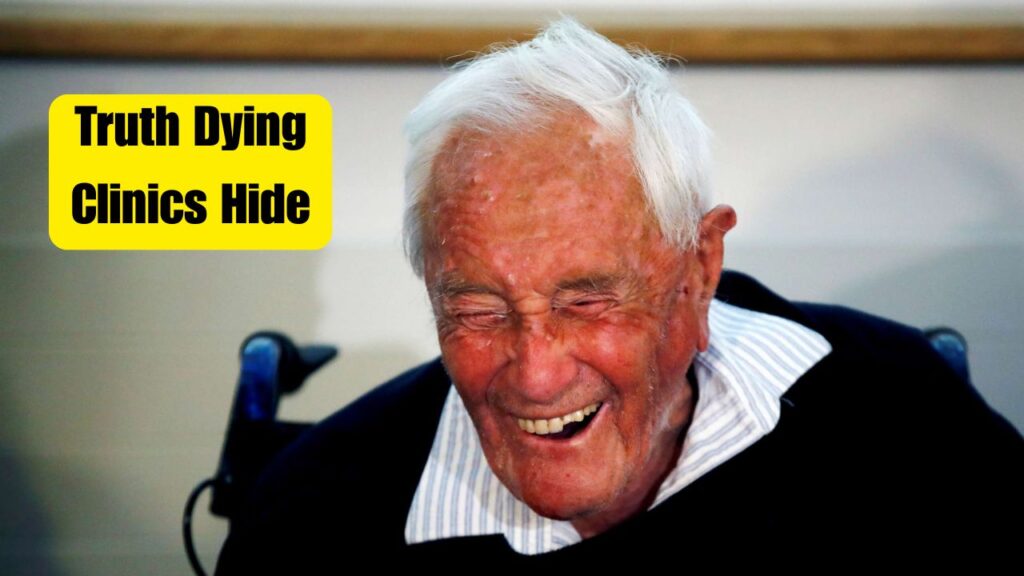From Switzerland to South Australia – In recent years, debates around assisted dying have intensified across Europe and Australia. While Switzerland has long been known for its permissive assisted dying clinics, many Australians are now traveling there seeking control over their final moments. However, what most people don’t realize is that these clinics often hide critical details about the psychological, legal, and ethical implications involved. This article explores the realities behind assisted dying tourism — from Switzerland’s confidential clinic operations to the growing policy discussions in South Australia — uncovering what assisted dying clinics don’t tell you before it’s too late.

Assisted Dying Clinics in Switzerland – The Hidden Realities
Switzerland is known for its liberal approach to assisted dying, allowing non-residents to end their lives under specific legal and medical conditions. But many clinics there operate under private agreements and minimal regulation, creating ethical and emotional risks for patients and families. Some clinics charge high fees, offer limited counseling, and do not always ensure that patients are making fully informed decisions. While Swiss law permits assisted dying if it is not driven by selfish motives, the emotional aftermath for families often goes unspoken, especially when the death occurs abroad, far from home and familiar support systems.
Why South Australians Are Seeking Assisted Dying Overseas
Although South Australia legalized voluntary assisted dying (VAD) under strict medical guidelines, some citizens still choose to travel overseas, particularly to Switzerland, due to perceived barriers in accessing VAD locally. These barriers may include long approval timelines, medical eligibility limits, or emotional distress caused by the process itself. Many feel that foreign clinics offer a “faster and more private” path, but what’s often hidden are the financial, emotional, and legal consequences. Repatriation of remains, lack of emotional closure for loved ones, and post-death investigations can turn a decision of peace into a complex and costly journey.
| Country | Assisted Dying Legal Status | Eligibility | Average Cost | Support Services |
|---|---|---|---|---|
| Switzerland | Legal for non-residents | Terminally ill or unbearable suffering | $8,000–$15,000 AUD | Limited counseling, optional family support |
| Australia (South Australia) | Legal under VAD law | Terminal illness within 6 months | Government-regulated | Comprehensive support and oversight |
| UK | Illegal | Not applicable | Not applicable | None |
| Canada | Legal (MAiD) | Terminal or intolerable suffering | Covered under public healthcare | Strong medical and family support |
Ethical and Emotional Impact of Assisted Dying Choices
Beyond legality, assisted dying raises deep ethical and emotional questions. Families often experience lasting guilt or confusion, particularly when the decision occurs abroad without shared discussion. Some ethicists argue that clinics abroad can exploit emotional vulnerability and financial desperation. In contrast, Australia’s model emphasizes transparency, counseling, and regulation to minimize coercion. As conversations continue, the focus must remain on compassion, dignity, and informed consent — ensuring no person feels pressured into ending their life prematurely due to lack of local support or awareness of safer, regulated alternatives.
Global Debate on Euthanasia Laws and Human Dignity
Worldwide, the debate over euthanasia and assisted dying continues to grow. Supporters argue it represents autonomy and relief from suffering, while opponents warn of moral decline and misuse. Countries like Switzerland, Canada, and parts of Australia showcase different frameworks — from open access to tightly regulated permissions. The key lies in balancing freedom of choice with safeguards that protect vulnerable individuals. As South Australia refines its own legislation, the lessons from Switzerland highlight an urgent need for transparency, compassion, and ethical clarity in every assisted dying decision.
Frequently Asked Questions (FAQs)
1. Is assisted dying legal in South Australia?
Yes, voluntary assisted dying is legal in South Australia under strict medical and legal guidelines.
2. Can Australians access assisted dying in Switzerland?
Yes, but they must meet Swiss clinic criteria and handle travel, cost, and documentation independently.
3. What are the costs involved in Swiss assisted dying?
Costs usually range between $8,000 and $15,000 AUD, excluding travel and repatriation expenses.
4. What support is available for families after assisted dying?
Support varies; in Australia, counseling and bereavement services are provided through state programs.


